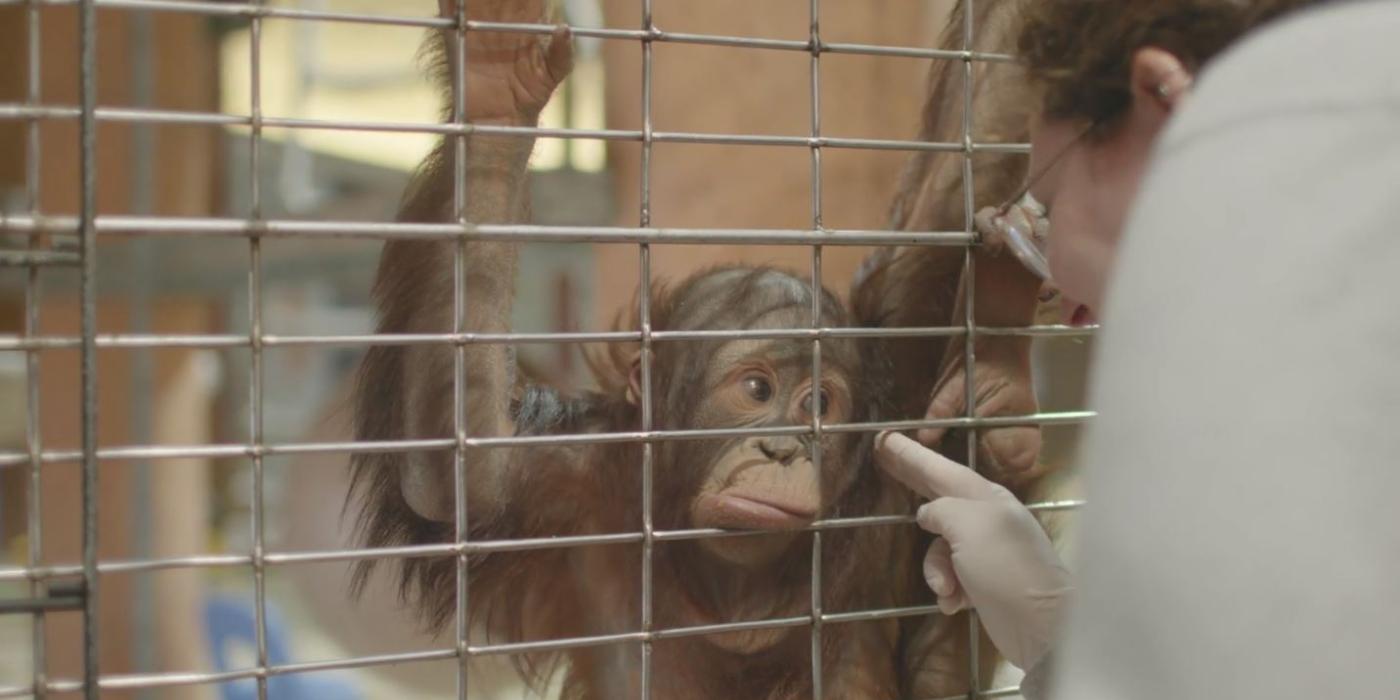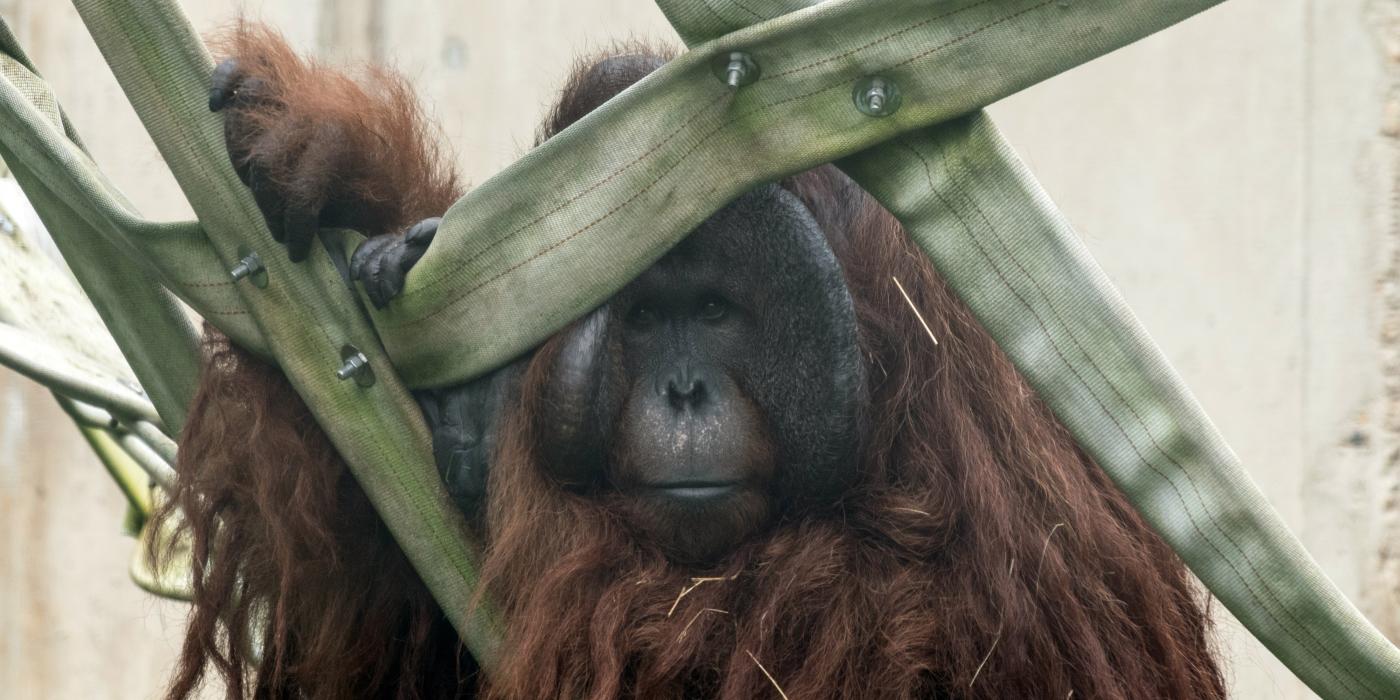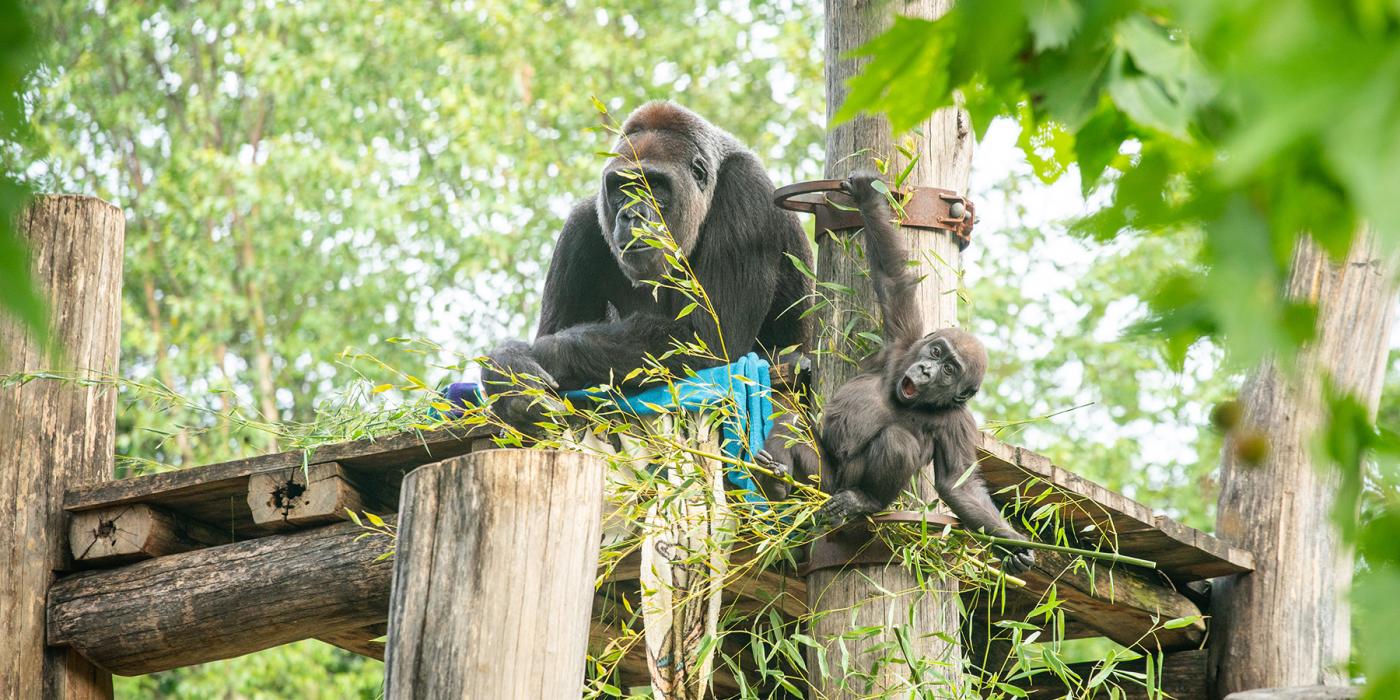#OrangutanStory: Redd Goes to School

This update was written by primate keeper Erin Stromberg.
Before we welcomed thousands of visitors to the Smithsonian’s National Zoo over spring break, the primate team took advantage of the quiet winter months to teach our 2.5-year-old Bornean orangutan, Redd, some husbandry behaviors. Animal keepers often hear from Zoo visitors that we have the best job in the world. That is certainly true in many respects! Along with cognition research, one of my favorite tasks is training our great apes to voluntarily participate in their own healthcare.
A key component to the Zoo’s animal enrichment and training program is positive reinforcement. In order to build a trusting relationship with the animals in our care, we first have to establish that participation is all on their terms. If they want to participate in a training session and do the behaviors asked of them correctly, they receive lots of verbal praise from the keeper as well as a favorite food reward. (Apes love grapes!) If they choose not to participate, there are no negative repercussions and we just try the behavior again at another time. Luckily, our apes seem to enjoy their one-on-one time with keepers, which makes it easier for us to monitor their health and wellbeing on a daily basis.
Batang, Redd’s mom, is a star when it comes to positive reinforcement training! Sometimes, though, she can be too willing a participant. One of the challenges in training Redd is that Batang also does not want to miss out on the attention—or treats—from keepers. Rather, to keep Batang occupied, we have taken to training the pair simultaneously. Since Redd is still dependent on Batang and will be for quite some time, we have not started separating them for their own individual training sessions. As Redd becomes more confident, these short separations will be part of their normal training routine.
As is the case with Batang, three keepers work with Redd on a routine basis. Each person focuses on teaching Redd on particular behavior. All of the behaviors that we train enable us to examine Redd up close and check his body for any injuries (such as cuts or scrapes) that may require medical attention.
Redd is a very fast learner when it comes to positive reinforcement training, despite the fact that he has the typical attention span of a toddler—very short! The good news is: like mother, like son. It does not take long for Redd to pick up a new behavior. Unlike his mother, however, he tends to show a behavior, receive his reward and then run around for a few moments before he is ready to move on to the next task at hand. When training Redd, patience definitely comes in handy!
Over the winter, Redd learned to present his belly, turn around and show his back and to present several body parts on cue, including his nose, thigh and ear. Soon after he learned how to present his ear to keepers, he let us take his temperature with an ear thermometer. Now, we are able to record his typical temperature. Not surprisingly, it is 98.6 degrees Fahrenheit, just like us.
Related Species:


